Trivia (19)
Father of three daughters, with June Forster, Elizabeth (born 1967) Kate Forster (born 1969) and Maeghen (born 1972).
Attended University of Rochester in Rochester, NY. Majored in psychology.
Once worked as a door-to-door vacuum cleaner salesman.
Tested for a part in True Romance (1993), directed by Tony Scott, but Christopher Walken eventually got the role.
Appeared with former NFL star/actor Fred Williamson in four films: Night Vision (1997), Original Gangstas (1996), South Beach (1993), and Vigilante (1982).
The role of Jake Nyman in American Perfekt (1997) was written specifically for him by British director and close friend, Paul Chart. The film was officially selected for the 50th Anniversary Cannes Film Festival.
Has a son, Robert Wallace Foster III (born 1965), with an ex-girlfriend named Marlene.
Was considered for the role of Martini in One Flew Over the Cuckoo's Nest (1975).
Profiled in "Character Kings: Hollywood's Familiar Faces Discuss the Art & Business of Acting" by Scott Voisin. [2009]
Was of English, Irish and Italian descent.
His third wife (and widow), Evie, was 38 years his junior.
Member of the Triple Nine Society, a high-IQ organization for persons whose IQ is in the 99.9th percentile.
He and Pam Grier notably co-starred in Quentin Tarantino's Jackie Brown (1997), but that was actually the second time that they had appeared together in a movie. The first was Larry Cohen's Original Gangstas (1996) the previous year.
Played two characters who had to describe another character with multiple personalities. He played Dr. Simon in Psycho (1998) who had to diagnose Norman Bates with multiple personality, and in Me, Myself & Irene (2000) he played Col. Partington, who had to describe how Charlie had multiple personalities.
One of his last film roles, El Camino: A Breaking Bad Movie (2019), was released on the day of his death.
Has four grandchildren.
He has appeared in one film that has been selected for the National Film Registry by the Library of Congress as being "culturally, historically or aesthetically" significant: Medium Cool (1969).
As of his death in 2019, he appeared in one film nominated for Best Picture Oscar: The Descendants (2011).
Upon his death, he was cremated and his ashes were scattered at sea.
Personal Quotes (16)
[about luck in the movie business] I'm not sure how a guy wins or loses in this business, but somebody's got to come along and make you lucky. You can't do it yourself.
[about his character in Jackie Brown (1997)] This is the great noir hero. If Humphrey Bogart or Robert Mitchum were around today, they'd be playing that role.
[about the rules to succeed in Hollywood] Step #1 is you've got to have a good attitude, Step # 2 is accept all things, deliver excellence to whatever is offered, give it your best shot. And rule #3 is never quit. It's not over 'til it's over.
[about Quentin Tarantino and his relationship with the cast] This guy is very smart, and he's great to his actors. He wants them to be great. He keeps the stuff fresh. When he gave me the script [for Jackie Brown (1997)] he knew I hadn't had a big part like this in 25 years and he said, "Here, read this, and don't put any pressure on yourself. Just prepare the way you normally prepare." And I said, "Oh, what a liberating thing." This guy is totally secure. He doesn't seem to be worried about anything. He's as good a guy as I have ever worked with. He screened movies once a week for his crew. One of them was American Perfekt (1997), a recent indie film I did. The last week of production he threatened to screen it for the crew and I said to him, "Listen, there's a tiny bit of 'adult content' in this, so I don't want to hear any catcalls. I don't know if this is the right thing to screen." He got on the walkie-talkie and said, "Hey, anybody who wants to see Forster naked come on in!"
[about his comeback and the comparison with John Travolta's career turn in Pulp Fiction (1994)] If I get 10% of John Travolta's bounce, I will be thrilled.
[why Quentin Tarantino likes to revive the careers of actors whom the industry has written off] He grew fond of people. He told me that he loved Pam Grier when he was a kid and I guess he saw Alligator (1980) and The Banker (1989), all those pictures that I worked on during those years and apparently he said, "I like this guy and one of these days I'm going to use him."
[on what roles he played that he thinks he will be best remembered for] I wouldn't know, but I just know this: If I can ever find a character where I get laughs, I hope that is the thing that endures. There's nothing better than getting a laugh.
[in 2011, on Mulholland Drive (2001)] In the very first scene that I shot, which was up on the hill at night, overlooking Los Angeles, I had huge lines of dialogue with somebody else, probably another cop. And after the first time we shoot it, [director] David Lynch says, "Do it slower." So I did it slower. Then he comes again at the end of the shot, and he says, "The next time we shoot it, do it slower." And I do it slower. And now I'm beginning to say to myself, "What is this guy doing?" Because I know what good timing sounds like, and I know what something coming out of my mouth ought to sound like, and I know what human back-and-forth should sound like, and this is beginning to sound different from that. It wasn't until months and months and months later that I realized that I was in a dream. It was not an actual event, but that I was in . . . I think it was the dream state of the girl who killed herself, but I'm still a little bit wobbly on how that movie works. But basically, it took me a very long time before I realized why he kept telling me to do it slower and slower. But don't forget, this is David Lynch, so I said to myself, "Don't fight this guy, Bob. Just do it the way he wants." And I'm so glad I did.
[in 2011, on The Black Hole (1979)] The uniform kept shrinking and shrinking until it was so tight that I . . . well, it was tight as can be. It was form-fitting, let's put it that way. And it was the only steady job I ever had as an actor. Six months to the day, working from 7 in the morning to 7 at night at the Disney studio, shooting on a number of sound stages. It was kind of an adaptation of one of my favorite movies as a kid: 20,000 Leagues Under the Sea (1954). "The Black Hole" was basically the space version. So it was from one of my favorite movies, and I could not believe my good fortune when I got picked to play the captain. But, otherwise, I remember it as a steady job and a very tight uniform.
[in 2011, on Reflections in a Golden Eye (1967)] When they asked me if I knew how to ride a horse, I did what all actors do: I said "Yes." I had never been on a horse, except when I was a kid, where you paid 10 cents to sit on a pony and walk around in a circle. But I said "Yes." On the day that we had to shoot that scene of me riding around on the horse--naked!--that was another memorable moment in my career. I had never made a movie, I didn't know how they were made, but I remember as I read that scene, where it said, "Guy rides around on a horse naked," I said to myself, "Boy, I wonder how they do that! Probably trick photography or something." But when I got there on that morning, here was an Italian extra--we were in Rome--riding around on that horse, riding through those trees. We were driving up to the set, and I saw the guy riding, and I said, "Holy moly, that's supposed to be me! I'm not going to let that guy do that!" So I went to [director John Huston] and I said, "You know, I can do that." And he said, [Huston impression] "Could you really, Bobby?" And I said, "Sure I can!" The next thing I know, the wardrobe department hands me a little . . . you know the pouch part of a jockstrap? Dyed flesh-colored. And a roll of flesh-colored tape. They hand this to me, and they say, "This is for your modesty." So I tried to tape the damned thing on, and after about two rounds with the horse, the horse is now warm and lathered up, and this thing is flopping around. I finally took it off and tossed it in the bushes, and I said, "Bob, if you are afraid to be naked on this horse, you'd better quit, because if you don't do it with full abandon, with absolute abandon, then you have no right to be an actor. You'd better quit now." And that was the moment I said to myself, "All right, just go with it, Bob."
[in 2011, on Alligator (1980)] Oh, boy, that's a favorite of mine. I was losing my hair at the time, and . . . I was in Schwab's Drugstore, one of the great meeting places for actors from 1941 to 1983, when it closed, but everybody, everybody, everybody went there for breakfast, including the governor, Jerry Brown. Actors, directors, writers, publicists, hookers, horse players, and hangers-on--you name it, they were all at Schwab's. And I was sitting there in a booth, reading my paper, and some guy was standing there waiting for a table, and I looked up. I thought he was reading over my shoulder, and I looked up to make sure he had finished before I turned the page, and he wasn't looking at the newspaper. He said, "Hey, Bob, I'm a friend of yours." I said, "Yeah, Lenny." He said, "I'm gonna tell you something, but . . . I'm a friend of yours." I said, "Lenny, what is it?" He said, "Bob, you look better with hair, and you'd better do something about it." And I thought to myself, "Jesus, the guy's right." I had gotten to the point where I was making jokes about hair loss. Now, you may remember that, in Alligator (1980) there are a series of little jokes about a guy who's sensitive about losing his hair. You remember that? I put those jokes into the movie. I wrote 'em, I asked the director if I could put 'em in here, put 'em in there. He said, "Yes," and the very first time we saw a rough cut of the movie, they were all in there, and in the second rough cut, they were all gone. And I figured, "Oh, God, this director didn't like them," or something, and I was sorry about it to myself. But then the third time, I said, "You know what? I think those belong in the movie." And he called me back and said, "I've had friends tell me that they miss those hair jokes, so I'm gonna put 'em back in the movie." And you may remember that when the movie was released, those hair jokes, every single reviewer commented on them. Without knowing how they got there, sure, but they all recognized that it was something human about the character, which gave it a little plus. Because, you know, it was a genre movie. It was a spoof of Jaws (1975), basically. With a guy who was losing his hair. So when Lenny said what he said to me, that's when I said to myself, "Losing my hair is not good enough to make the next joke. You'd better do something about it."
[in 2011, on landing Jackie Brown (1997)] I snared Quentin Tarantino at a little restaurant. He was walking in, unassuming, and another actor and I were sitting there, and I yelled at him. And he wandered over and we talked for a while, we broke his balls a little bit and kidded around, and I said, "What are you working on?" He said he was adapting "Rum Punch", an Elmore Leonard novel. He said, "Why don't you read it?" And I did. Six months later, I walked into the same restaurant--where I have breakfast every morning, so I'm a regular there--and as I came out onto the patio and turned toward my table, he was sitting in my spot. And as I approached him, he lifted up this script and extended it toward me and said, "Read this, see if you like it." See, my career by then was dead. No agent, no manager, no lawyer, no nothing. And this guy hands me this script and says, "Read it and see if you like it." And I took it home, and I did read it, and I could not believe that he was talking about the Max Cherry role. And I know that Pam [Pam Grier] had the same exact experience when she read it. I read it, and I couldn't figure out what part he had in mind for me. But when I called him, he said, "Let's have breakfast again," so the following morning we had breakfast again, and because I'd had the experience before of getting close to a good role and having the distributor say, "No, no, no, we want somebody else," I said to him, "Look, I appreciate it, but I don't think they'll let you hire me." And he said, "I hire anybody I want." And that's when the world stopped. I know that Pam had the same experience, because we've talked about it. I could not believe that I was going to get another shot at this business. But this guy gave it to me. He gave me a gift, the size of which cannot be exaggerated.
[in 2011, on Heroes (2006)] I didn't know if I was a good guy or a bad guy until the third or fourth episode. They didn't tell me. They were cryptic about whether or not I was good or bad. And so I tried to play it right down the middle, so that when I did discover whether I was a good guy or a bad guy, I would be able to then lean it over in that direction. But eventually I decided, "No, no, these are not the actions of a good guy. This guy is a bad guy." So that colored the rest of my performance. I only did nine shows, so about halfway through was when I figured out that I was not a good guy.
[in 2011, on Me, Myself & Irene (2000)] I just played it as straight as I could, and I enjoyed that. First of all, I like Jim Carrey. I liked Jim Carrey from the very beginning. There are two guys who knocked my socks off the first time I ever saw them: One was Robin Williams. The other's Jim Carrey. The first time I saw both of 'em, I said, "How do they do that? What are their minds like, these guys?" Well, I ran into Jim Carrey at a party and shook hands and I told him what I just said, that I liked him in [Ace Ventura: Pet Detective (1994)] and whatever else I'd seen him in. A week or so later, I get a call from 20th Century-Fox: "Jim Carrey wants you to play the head of the Rhode Island State Police." So there you go. Jim Carrey, what a guy. Threw me a job. And I liked doing it.
[in 2011, on The Delta Force (1986)] First time I ever played a bad guy. I didn't want to do it. I got stuck in bad guys for 13 years after that. I was broke, my agent had lent me money. He said, "No, I don't have anything else for you. You're going to have to go to Israel and play the bad guy." Which I did. And I got away with. And I got stuck for 13. Until Jackie Brown (1997) pulled me out of the fire.
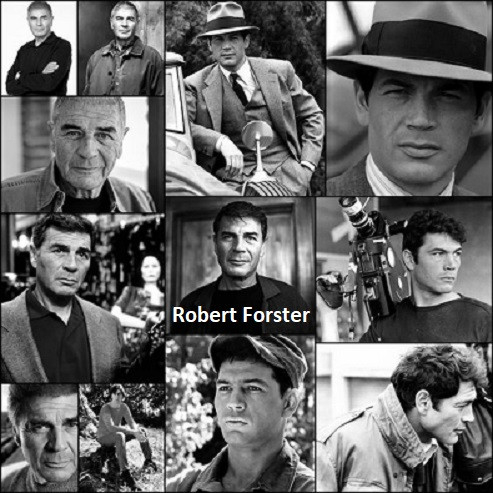
 Amanda S. Stevenson
Amanda S. Stevenson 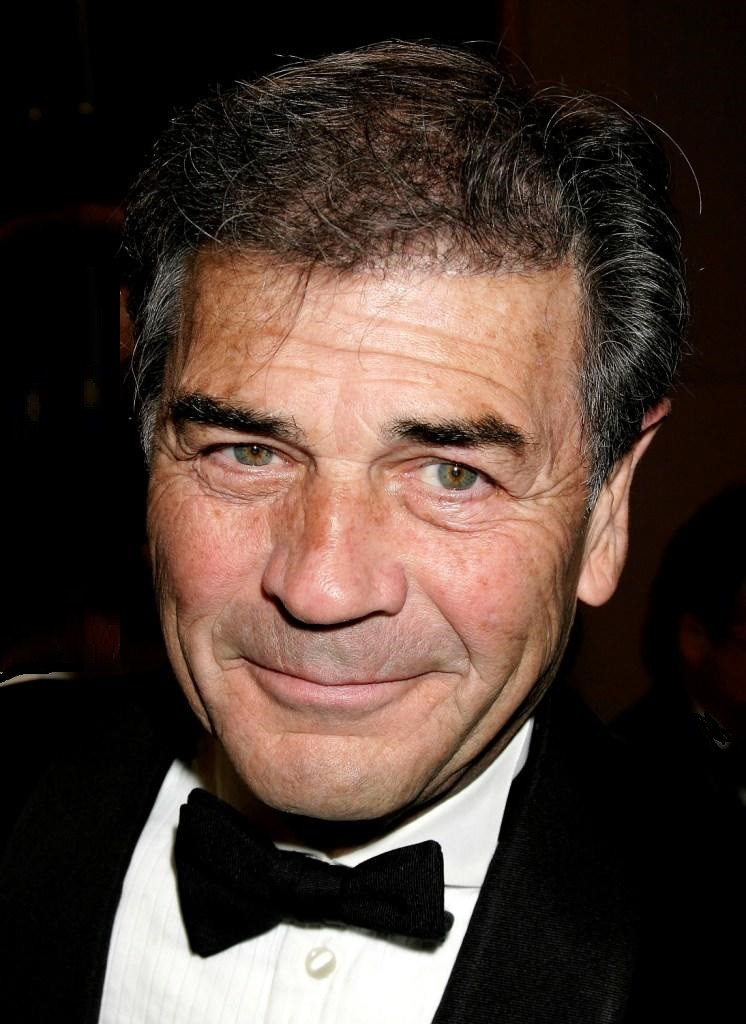
 Amanda S. Stevenson
Amanda S. Stevenson 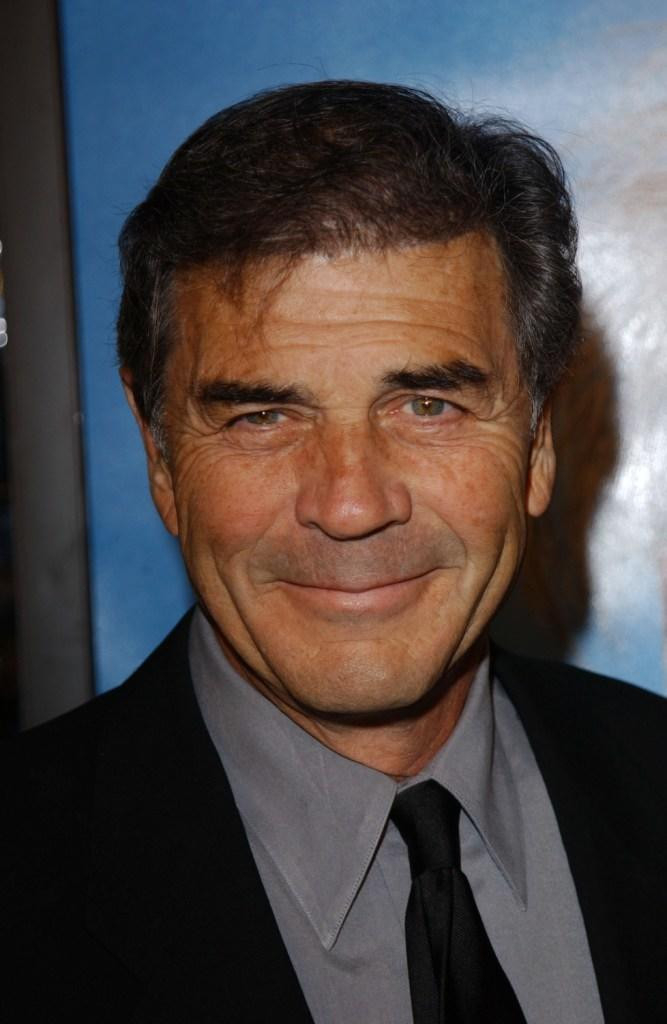
 Amanda S. Stevenson
Amanda S. Stevenson 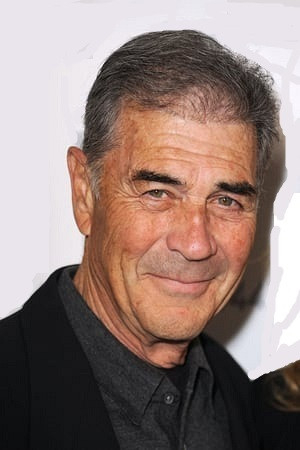
 Amanda S. Stevenson
Amanda S. Stevenson 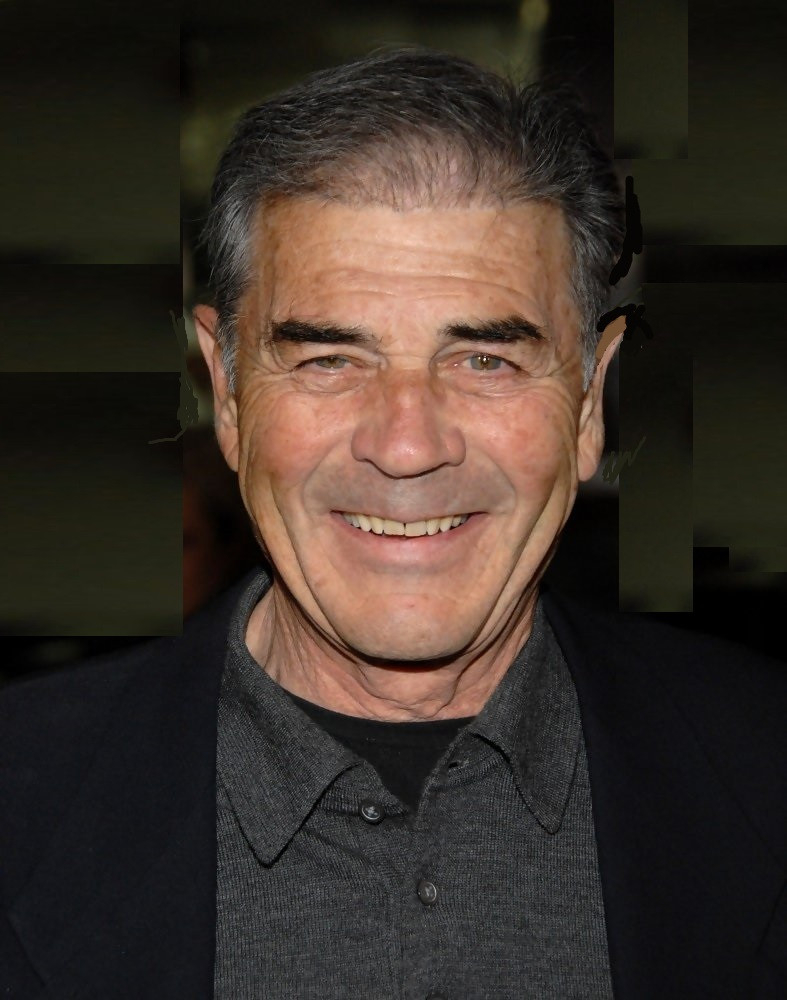
 Amanda S. Stevenson
Amanda S. Stevenson 